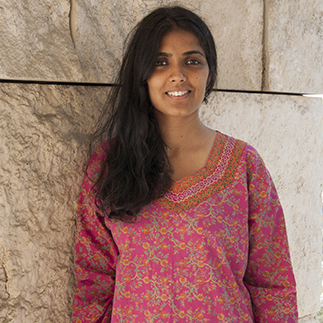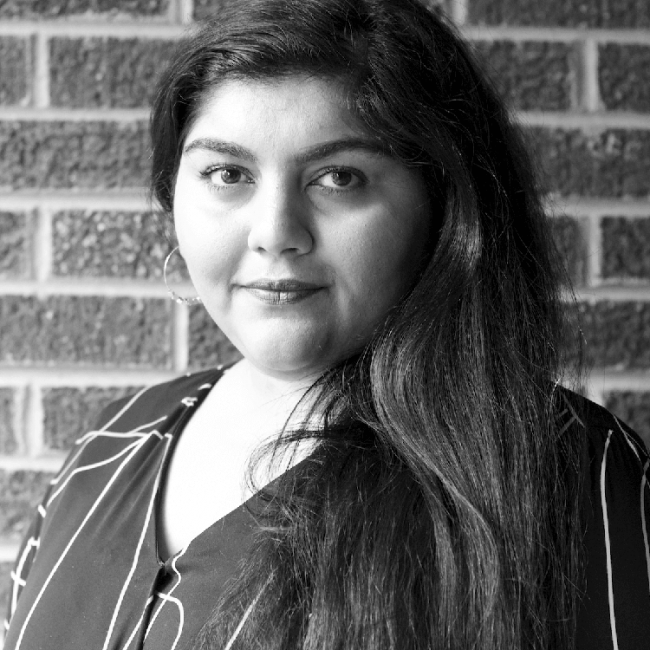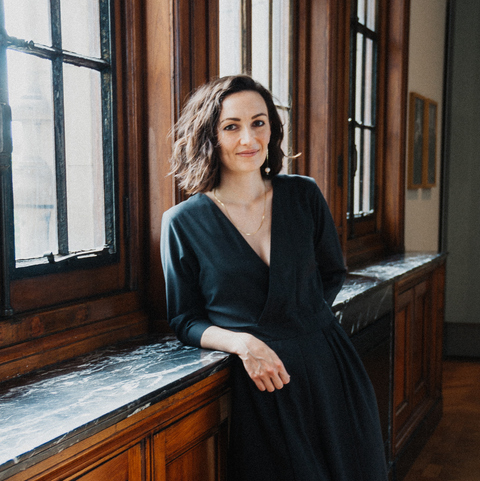
Dr. Meha Priyadarshini, Principal Investigator,
Senior Lecturer, Department of History, University of Edinburgh
Meha Priyadarshini is Senior Lecturer in History at the University of Edinburgh. Her research covers the areas of global history, material culture studies, colonial Latin American history and the emerging new field of global Asian studies. Meha’s scholarship centers on the early modern period and with a particular focus on how we think about the connections between people, places and things in that era. Her work specializes on the connections between colonial Latin America and Asia, using methodologies and approaches of material culture studies to investigate the connection between the two regions. Her first book Chinese Porcelain in Colonial Mexico: The Material Worlds of an Early Modern Trade (Palgrave Macmillan, 2018) is a study of the transpacific trade connection through the production, trade, and consumption of porcelain. Her latest book-length publication is the edited volume Transpacific Engagements: Trade, Translation and Visual Culture of Entangled Empires (Getty Research Institute, 2022). Meha completed a PhD at Columbia University and has held numerous fellowships, including one at the Getty Research Institute, as well as at the Kunsthistorisches Institut in Florenz – Max-Planck-Institut.

Dr. Deepthi Murali, Principal Investigator,
Research Assistant Professor, Roy Rosenzweig Center for History and New Media, Department of History and Art History, George Mason University
Deepthi Murali is Research Assistant Professor at the Roy Rosenzweig Center for History and New Media. She is an art historian of South Asia specializing in eighteenth- and nineteenth-century courtly and decorative arts of South India. Her research examines transcultural processes of production of wood and ivory objects from southwestern India and cotton textiles from southeastern India, and the use of these objects across the Indian Ocean World. At RRCHNM, she is co-PI of Connecting Threads, a born-digital project tracing the circulation of striped and checked cotton textiles from India and their use in the Greater Caribbean Region. Her other project explores new media and use of DH methodologies in the discipline of art history through a digital art history project called Digital Chintz, that studies the history of eighteenth-century chintz textiles in North American museum collections. She is also the co-PI for HBCU History and Culture Access Consortium, a digital public history project led by the Smithsonian National Museum of African American History and Culture. For more on her past research and work on wood and ivory objects, please see her website. As a postdoctoral research fellow at RRCHNM from 2020-2022, Deepthi also worked on the public history podcast Consolation Prize, and digital public history projects such as Collecting These Times, and World History Commons. Deepthi has a BArch in Architecture from Bangalore University, India, MS in History Preservation from The University of Texas at Austin, and PhD in Art History from the University of Illinois at Chicago.

Avalon Fotheringham, Co-Principal Investigator,
Curator of South Asian Textiles, Victoria & Albert Museum, London
Avalon Fotheringham (co-PI) is the curator for the South Asian textiles and dress collection at the V&A. Her research focuses on Indian textile production and circulation in the nineteenth century, especially the establishment and growth of museum-based sample collections in support of industrial manufacturing. She is the author of The Indian Textile Sourcebook: Patterns and Techniques, as well as essays and articles on Indian floral patterns through history, the impacts of colonialism on Indian dress, the history of beetle-wing embroidery, the Indian transition to synthetic dyes, and more.

Dr. Victoria de Lorenzo
Postdoctoral Research Fellow, University of Edinburgh
Lecturer, London College of Fashion, University of the Arts London
Victoria de Lorenzo is a textile historian interested in the materiality of textiles as agents of economic and cultural change in processes of circulation from the eighteenth to the twentieth centuries. Her thesis, titled “Connecting Threads: The Transnational Textile Trade between Nineteenth-century Britain and the Spanish-speaking World,” employed a transnational approach to investigate the reciprocal impact of textile traders, recipient societies, and intermediaries in the Anglo-Hispanic textile trade between the 1830s and 1914, with a particular focus on Cuba. In her research, she applies an interdisciplinary approach, combining business records with other archival and material sources. She has published articles in Fashion Theory and, with the rest of the Connecting Threads team, in The Journal of Historians of Netherlandish Art. Most recently, she has received a research grant from The Karun Thakar Fund for a forthcoming article.

Dr. Jason A. Heppler, Digital Project Lead,
Senior Developer, Roy Rosenzweig Center for History and New Media, George Mason University
Dr. Jason Heppler is the Senior Developer at RRCHNM and has developed and lead numerous digital history projects over his career. A historian of the modern United States, he studies the environmental, urban, and political history of North America. His second second book, Silicon Valley and the Environmental Inequalities of High-Tech Urbanism, will be published in spring 2024 with the University of Oklahoma Press, and served as the co-editor of Digital Community Engagement: Partnering Communities with the Academy. He holds a B.A. in History and Economics from South Dakota State University, and an M.A. and Ph.D. in History from the University of Nebraska-Lincoln.

Dr. Mills Kelly, Advisor,
Professor, Roy Rosenzweig Center for History and New Media, Department of History and Art History, George Mason University
Dr. Mills Kelly is Professor of History and the former Executive Director of the Roy Rosenzweig Center for History and New Media (RRCHNM) at George Mason University. His new media interests center on public history and the influence of digital media on student learning in history. He co-directed two NEH-funded education projects: World History Sources and Women in World History that won the American Historical Association's James Harvey Robinson Award in 2007 for the best teaching resource of the previous two years. He was the principal investigator on another NEH-funded education project: Making the History of 1989: The Fall of Communism in Eastern Europe. In recognition of his work on teaching with technology, Mills received the Commonwealth of Virginia's Outstanding Faculty Award and George Mason University's Teaching Excellence Award in 2005. In 2020 Mills received the Gutenberg Teaching Award from the University of Mainz. In 1999 he was a Pew National Fellow with the Carnegie Foundation for the Advancement of Teaching and in 2001-03 was a fellow with the Visible Knowledge Project based at Georgetown University. He is currently working on a digital history of the Appalachian Trail, America's oldest and most famous long-distance hiking trail. From 2018-2020, Mills was part of the presidential team of the International Society for the Scholarship of Teaching and Learning (ISSOTL), and served as the organization's president in 2018-2019. Mills is the author of Teaching History in the Digital Age (2013) and, Without Remorse: Czech National Socialism in Late-Habsburg Austria (2007). Mills blogs at edwired.
Past Contributors

Janet Hammond
Janet Hammond is a PhD student at George Mason University and a Digital History Fellow at CHNM. She enjoys historical learning in the digital, museum, and collegiate realms. In the world of public history, her interests lie in how to make narratives more accessible for people with physical disabilities. At other times, she studies British Parliamentary divorce and how the state and gender influenced these laws and cases. She has a MA in History with a concentration in Museum Studies from UNC Greensboro and a BS in Applied and Public History with a Minor in French and Francophone Studies from Appalachian State University.

Joy Khatra
Joy is an undergraduate research assistant and currently majoring in Art History and Anthropology. He is also in the Accelerated Masters program for Art History at George Mason University. Joy was a research assistant on the Connecting Threads project, focusing on the history of Indian cotton textiles during the eighteenth-century through its circulation and production.